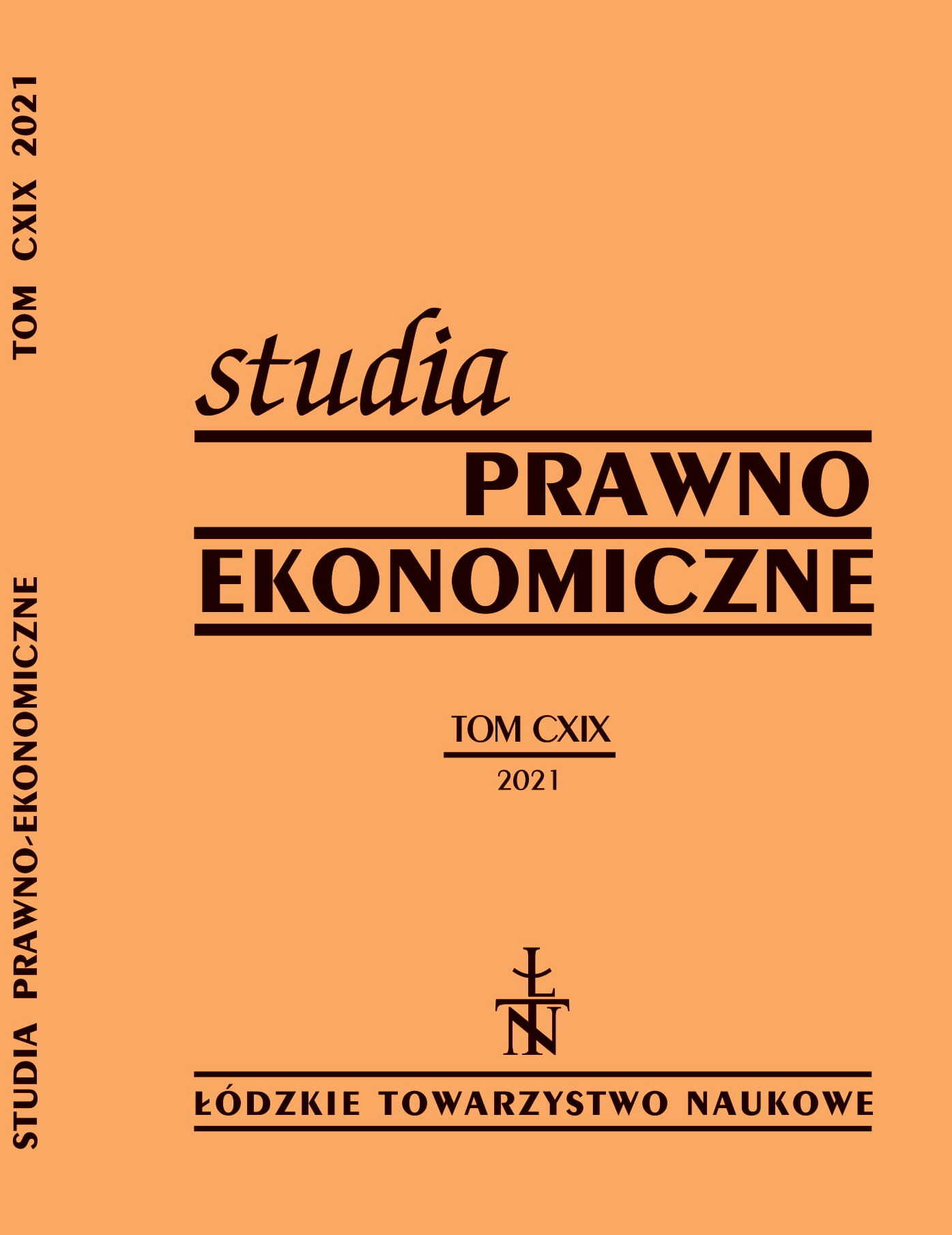Applications supporting personal financial management – student financial education perspective
DOI:
https://doi.org/10.26485/SPE/2021/119/19Keywords:
PFM applications, financial technology, COVID-19Abstract
Background: New trends in the offers of financial institutions and a change in consumer behaviour, especially during periods of social isolation and quarantine caused by the COVID-19 coronavirus pandemic, are becoming a challenge for banks, internet Third Parties Providers, and mobile environment and technology companies. The article is devoted to the analysis of the behaviour of representatives of the young generation – students of the Poznań University of Economics and Business – in the area of applications supporting the personal finance management process.
Research purpose: The aim of the article is to assess the functionality, reliability and usability of PFM applications by the young generation as part of their financial education.
Methods: The study presents students’ attitudes towards financial applications, indicating their needs and practicality of using the application, especially in the period of social isolation, remote work resulting from COVID-19. The CAWI survey method was used, preceded by application testing by students.
Conclusions: The survey results point to the very high popularity of financial applications that are offered by non-bank institutions. In addition, the pandemic period highlighted technical and substantive gaps in applications, such as the need to update the function of remote contact with the user in the area of current settlements and payments, advice and ongoing contact with a consultant, and remote assistance in formalities in the field of loans and deposits. According to the respondents, PFM applications supported the financial management process and the accumulation of savings, which had the advantage of raising economic and financial knowledge and financial skills for them.
References
Barembruch A., Bankowość detaliczna a nowoczesne narzędzia wspomagające zarządzanie finansami osobistymi, Zarządzanie i Finanse 2013/11/2/1.
Bogacka-Kisiel E., Finanse osobiste. Zachowania – Produkty – Strategie, Wydawnictwo Naukowe PWN, Warszawa 2012.
Bywalec C., Ekonomika i finanse gospodarstw domowych, Wydawnictwo Naukowe PWN, Warszawa 2012.
Chmielarz W., Szumski O., Zborowski M., Kompleksowe metody ewaluacji jakości serwisów internetowych, Wydawnictwo Naukowe WZ UW, Warszawa 2011.
Fatuła D., Elementy kultury bezpieczeństwa a zachowania klientów instytucji finansowych, Bezpieczeństwo. Teoria i Praktyka 2018/4.
Financial education and youth, OECD, https://www.oecd.org/finance/financial-education-andyouth.htm; stan na 8.06.2020 r.
Gafrikova V., Szczesny W., Odrzygóźdź Z., Online personal finance management applications, Information Systems in Management 2015/4/1.
ISO 9126: International Organization for Standardization. (1991). ISO/IEC IS 9126: Information Technology – Software Product Evaluation – Quality Characteristics and Guide Lines for Their Use, Genewa 1991.
Kaczmarek M., Bankowość internetowa rozwinie się, bo… #zostańwdomu, Obserwator Finansowy, (2020), https://www.obserwatorfinansowy.pl/tematyka/makroekonomia/trendy-gospodarcze/bankowosc-internetowa-przyspieszy-i-rozwinie-sie-bo-zostanwdomu/; stan na 29.05.2020 r.
Kisiel M., Perspektywy rozwoju bankowych aplikacji PFM w kontekście wdrożenia dyrektywy
PSD2, w: M. Maciejasz-Świątkiewicz, J. Karwowski (red.), Ekonomia. Finanse. Bankowość.
Księga Jubileuszowa Profesor Ewy Bobackiej-Kisiel, Wydawnictwo UE Wrocław, Wrocław 2016.
Macierzyński M., Aplikacje do zarządzania domowymi finansami mają w Polsce małe szanse na sukces?, (2009), https://prnews.pl/aplikacje-do-zarzadzania-domowymi-finansami-maja-wpolsce-male-szanse-na-sukces-49580; stan na 29.05.2020 r.
Milic-Czerniak R. (red.), Finanse osobiste. Kompetencje, narzędzia, instytucje, produkty, decyzje, Difin, Warszawa 2016.
Musiał M., Efektywność gospodarowania finansami osobistymi w Polsce, Wydawnictwo Uniwersytetu Szczecińskiego, 2018.
Musiał M., Zastosowanie instrumentów zarządzania finansami osobistymi w polskich gospodarstwach domowych, Kwartalnik Kolegium Ekonomiczno-Społecznego Studia i Prace 2015/3/4.
Nielsen J., Usability 101: Introduction to Usability, (2012), https://www.nngroup.com/articles/usability-101-introduction-to-usability/; stan na 27.05.2020 r.
OECD (2017), PISA 2015 Results (Volume IV): Students’ Financial Literacy, PISA, OECD Publishing,
Paris. https://doi.org/10.1787/9789264270282-en
PISA, https://pisa.ibe.edu.pl/wyniki-pisa-2018/; stan na 5.11.2020 r.
PSD2, Dyrektywa Parlamentu Europejskiego w Rady UE w sprawie usług płatniczych w ramach rynku wewnętrznego, (2015), https://eur-lex.europa.eu/legal-content/PL/TXT/?uri=CELEX%3A32015L2366; stan na 5.11.2020 r.
Samsel A., Planowanie jako element zarządzania budżetem gospodarstw domowych, Rozprawy Ubezpieczeniowe 2019/1 (31).
Szpringer W., Fin-Tech – nowe zjawisko na rynku usług finansowych, e-mentor 2016/2 (64).
Waliszewski K., Model doradztwa w obszarze finansów osobistych na tle doświadczeń międzynarodowych, Wydawnictwo Uniwersytetu Ekonomicznego w Poznaniu, Poznań 2016.
Zborowski M., Łuczak K., Propozycja doboru składowych struktury kryteriów oceny jakości aplikacji mobilnych na przykładzie wybranych bankowych aplikacji mobilnych w Polsce, Annales H – Oeconomia 2016, s. 1–20. https://doi.org/10.17951/h.2016.50.2.183.
Ziemba E., Metodologia budowy serwisów internetowych dla zastosowań gospodarczych, Wydawnictwo Akademii Ekonomicznej im. Karola Adamieckiego w Katowicach, 2005.







